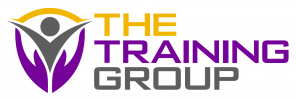Unit 1: Understanding roles, responsibilities and relationships in education and training
Learners will be taught how to analyse the application of pedagogical principles, use assessments, plan lessons and prepare for the classroom environment.
Understanding and using inclusive teaching and learning approaches in education and training
Planning to meet the needs of learners in education and training (Copy 1)
Assessing learners in education and training (Copy 1)
Using resources for education and training (Copy 1)
Unit 2: Teaching, Learning & Assessment In Education & Training (Copy 2) (Copy 1)
Learners will be taught about their responsibilities as educators, educational legislation, meeting the needs of the learners and how to teach in a student-centred manner.
Unit 3: Theories, Principles & Models In Education & Training (Copy 2) (Copy 1)
Learners will be taught ways in which theories, principles and models of learning can be applied to teaching, learning and assessment.
Unit 4: Wider Professional Practice & Development In Education & Training (Copy 2) (Copy 1)
Learners will be taught about the concepts of professionalism and dual professionalism in education and training and how they can apply this within the classroom.
Unit 15: Inclusive Practice (Copy 2) (Copy 1)
Learners will be taught how to review the impact of personal, social and cultural factors on learning and teaching.
Unit 17: Preparing for the mentoring role (Copy 2) (Copy 1)
Learners will be taught how to analyse the skills and qualities required for a the mentoring role teachers play in education.
Unit 25: Developing, using and organising resources in a specialist area (Copy 2) (Copy 1)
Learners will be taught how to analyse how theories, principles and models of inclusive curriculum design can be used to inform resource development in own specialist area.
No questions yet
Be the first to ask your question! You’ll be able to add details in the next step.
Ask a new question
Add an answer
The Minimum Core
As a trainee teacher, you are expected to demonstrate a set of essential skills and knowledge known as the Minimum Core. This article will provide an in-depth understanding of the Minimum Core in Education and how you can demonstrate and improve your personal skills. Additionally, it will guide you on how to evidence your knowledge of the Minimum Core by planning, delivering, and assessing.
What is the Minimum Core?
The Minimum Core in Education refers to a set of fundamental skills and knowledge required by all trainee teachers to ensure that they have the basic skills necessary to support their learners. It includes the skills needed for effective communication, numeracy, and literacy. Additionally, it covers digital skills, problem-solving skills, and personal and professional skills, including the ability to reflect and evaluate on their practice.
Demonstrating the Minimum Core
To demonstrate the Minimum Core, you need to display your ability to communicate effectively in various situations, such as teaching, communicating with colleagues and parents. This skill is critical in creating a positive learning environment where learners feel valued and understood.
You also need to demonstrate numeracy and literacy skills when delivering your lessons. The ability to use language and numbers with ease and accuracy is essential to ensure that learners understand the information that you are trying to convey.
Improving your Personal Skills
To improve your personal skills, you need to focus on self-reflection, self-awareness, and self-improvement. As a trainee teacher, you should reflect on your teaching practices and think of ways to improve them continuously. This could include seeking feedback from your peers and experienced teachers.
Additionally, you can develop your personal skills by seeking professional development opportunities such as attending workshops, conferences, and training sessions. These sessions can provide you with new teaching strategies, resources, and tools that you can use to improve your teaching practices and demonstrate the Minimum Core effectively.
Evidencing the Minimum Core: Planning, Delivering, and Assessing
To evidence your knowledge of the Minimum Core, you need to focus on planning, delivering, and assessing your lessons effectively. You can demonstrate your knowledge of the Minimum Core by incorporating the following into your teaching practices:
Planning
- Ensure that your lesson plans cover the key elements of the Minimum Core.
- Incorporate opportunities for learners to develop their communication, numeracy, and literacy skills.
- Use appropriate resources and tools to support the development of digital skills.
Delivering
- Use appropriate language and vocabulary to support learners’ literacy and language development.
- Incorporate numeracy and problem-solving activities in your lessons.
- Use digital tools to support learners’ development of digital skills.
Assessing
- Use assessment strategies that include the development of communication, numeracy, and literacy skills.
- Provide learners with feedback to support their development of personal and professional skills.
- Use digital tools to support learners’ development of digital skills.
Further Reading
Academic Articles:
-
Leach, J. (2011). Developing the minimum core: developing maths, English and ICT skills in vocational contexts. London: Learning and Skills Improvement Service.
-
Newton, P. (2013). Exploring the minimum core: What is the impact of adult literacy, language and numeracy training on learners’ outcomes and progression? Journal of Education and Work, 26(1), 1-16.
-
Winterton, J. (2006). The minimum core: A conceptual analysis. Journal of Education and Work, 19(1), 21-34.
Online Articles:
-
The Education and Training Foundation. (2018). Minimum Core. Retrieved from https://www.et-foundation.co.uk/supporting/support-practitioners/minimum-core/
-
Gov.uk. (2014). Minimum core for literacy and numeracy: A guide for teachers. Retrieved



